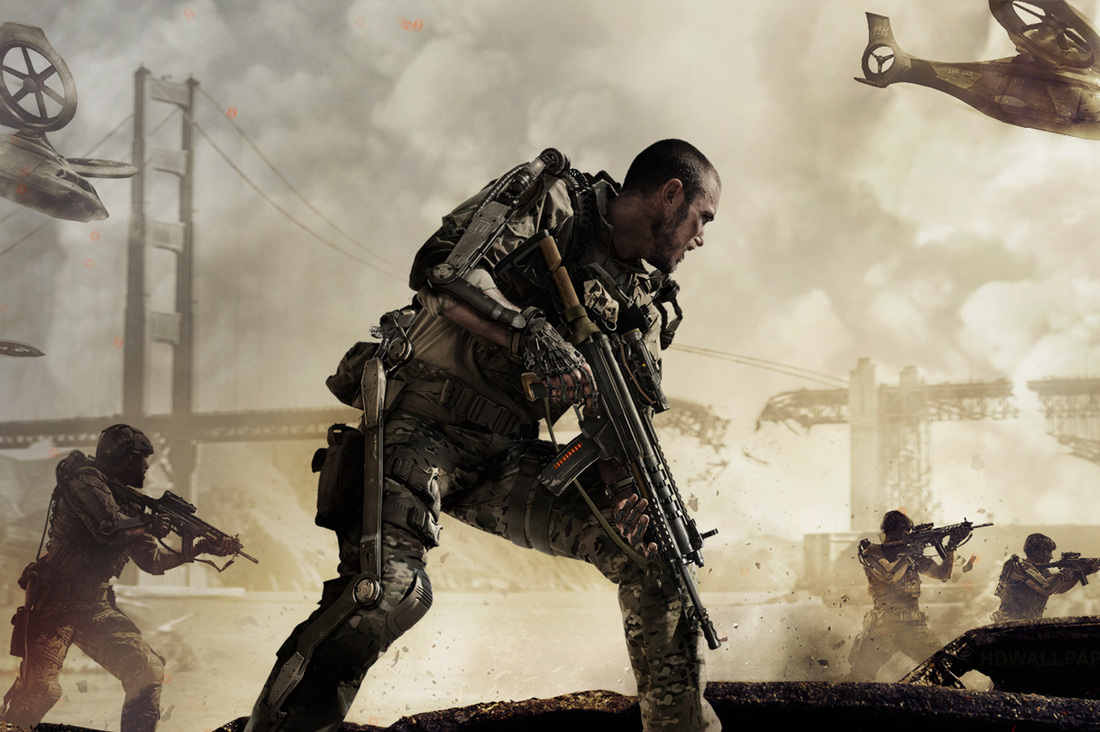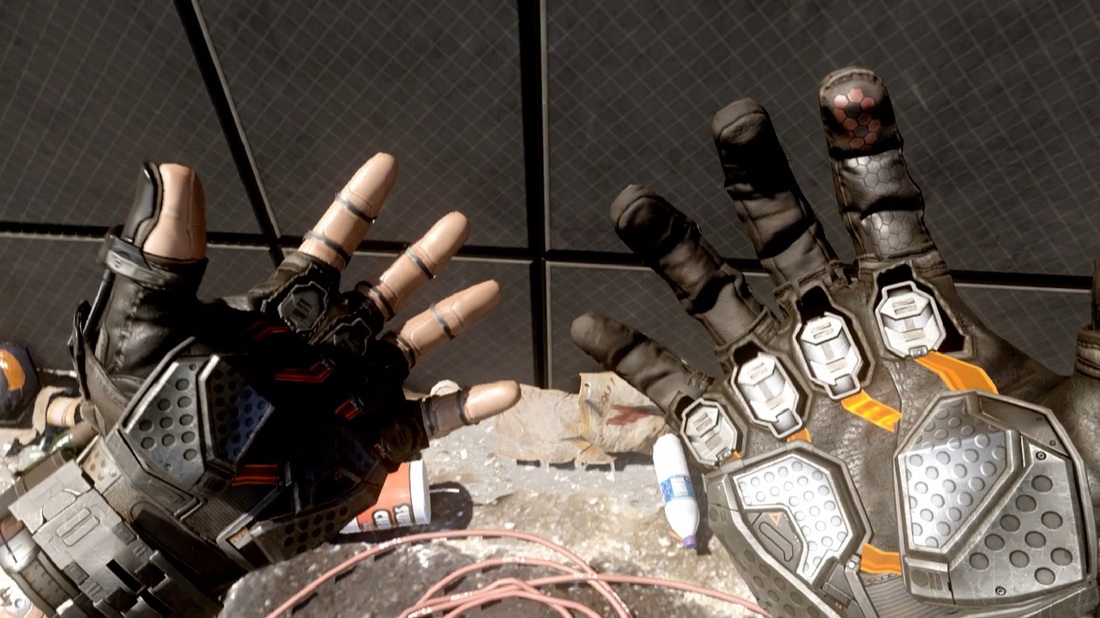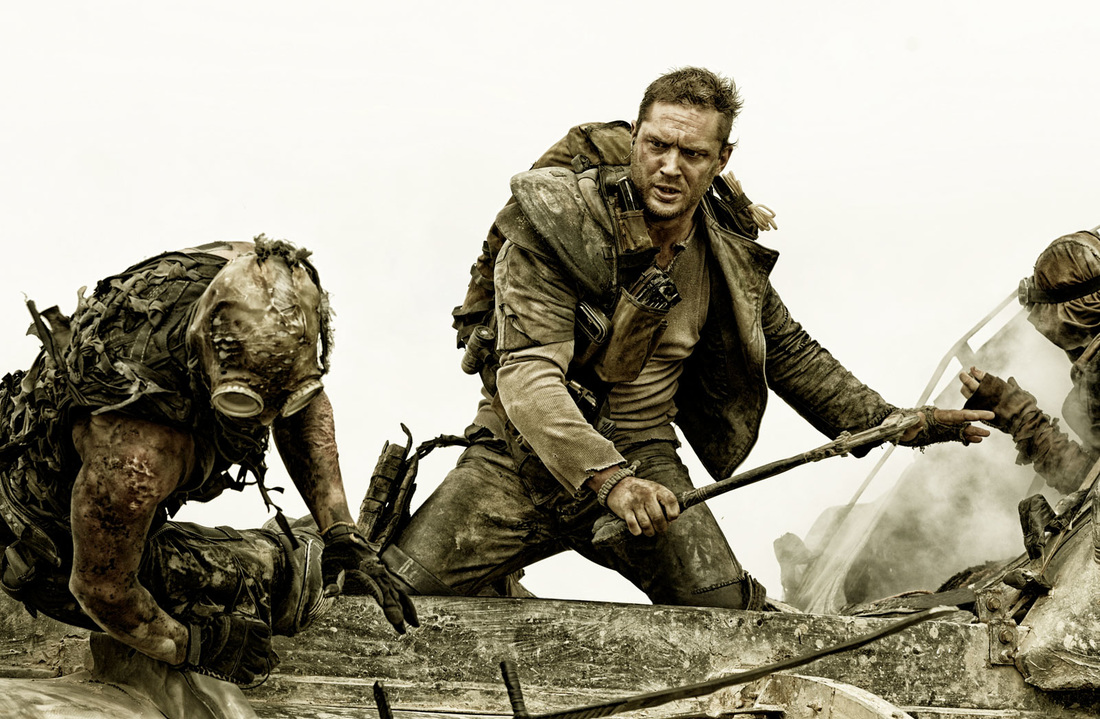The game, in all of its violent glory, is spectacular. I didn't internalize what it had asked of me at the highway until a few hours after I'd reached the credits. In that moment, my efforts to thwart global terrorism involved flippantly shooting civilians, whose vehicles functioned as just another interesting form of cover. And I didn't hesitate.
And gone, mercifully, are the load screens that quoted political leaders, namely neoconservative hawks, whose war-for-profit agenda flattered the franchises' fetishization of the military industrial complex like a cherry on top of a sundae.
But Call of Duty as a franchise remains okay with using civilians and domestic settings as dramatic shorthand for its single-player stories. In Advanced Warfare, missions take place in American cities or in cities that, thanks to the globalism of its fictional future, resemble American city doppelgangers. The player kicks down the door to a suburban home, throws grenades in the mall, and assassinates targets in the bland office buildings I've become intimately familiar with on my morning walk to work.
The local settings ground the conflict. They provide context. For all the talk of tech and weapons, what I secretly and darkly enjoy most about the franchise is how it captures the mundane. Its homes are littered with well-worn teddy bears and acoustic guitars that you imagine the father of the house keeps saying he'll learn how to play. The games are immensely fascinated with the pedestrian, and you can see it throughout Advanced Warfare, where the cities of the future appear to be designed by a Miami architecture firm, and the props appear to be digital recreations of the January 2029 Sharper Image catalogue.
We understand boring things. We live amongst boring things. While aliens baffle us, and global political conflict confuses us, and geography of places that don't look like London or New York or Chicago blurs together, the ultra-familiar, ultra-Western world of Call of Duty plays to what we know.
Let me ask the question I have possibly refused to to acknowledge while playing these games over the past decade, but just keep bumping up against: do we prefer killing virtual people on a world that looks like our own?
It's a question that will stick with me for awhile, because while I know the grim implications, I also know I won't stop playing Call of Duty. I never do. Year after year, the series taps into something dark inside me and millions of other people like me. And this version, Advanced Warfare, is the most adept at that soul-tapping in some time. Sure, it spans the globe, and it takes place in the future, but thanks in large part to Spacey, that familiar face, and its carefully selected locales, it feels more human, more prescient, and more real than any game in the series since it moved to the modern setting with Modern Warfare.
I know full well that the game makes killing people seem as mundane as that unused guitar prop in the corner of the middle management office space. But in a couple weeks, I'll be in multiplayer, still doing my damndest to improve my kill-to-death ratio, and I will slowly forget this — or just push it to the far end of my mind. I'm already addicted to the power. Right now, I can't stop thinking about sneaking in a round or two at lunch. This drug may be bad for me, but I'm high as fuck.





